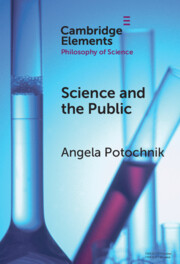Scientific discovery, especially at the boundaries of human observational capacity, is an extended, incremental and sometimes controversy-laden process; but practicing researchers' published statements do not always portray it as such. If extraterrestrial life (ETL) exists, and if we find it, the process of observation, interpretation, understanding and confirmation may take decades. Though it is, thus, likely that scientific consensus will accrue around an ETL interpretation in a gradual and subtle process, the general public and even practicing scientists often discuss ETL discovery as though it will be rapid and dramatic. To illustrate this phenomenon, this review analyses a convenience sample of astronomers', astrobiologists' and astrosociologists' statements and assumptions in scholarly and general-audience media regarding a prospective discovery of ETL. Of 30 surveyed scholarly studies and 37 surveyed general-audience pieces, 24 scholarly and scientists' perspectives in 32 general-audience pieces do not acknowledge the extended nature of scientific discovery; and only three and four, respectively, do so explicitly. These results suggest that ETL researchers' statements could often portray an inaccurate or at least atypical vision of scientific progress in their own studies and to general-audience media outlets.


